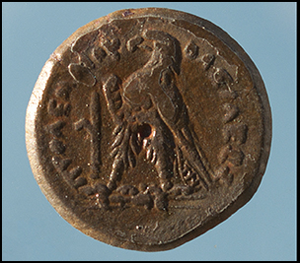Published online by Cambridge University Press: 19 March 2021

Evidence from a newly discovered well at Berenike, a Hellenistic port on Egypt's Red Sea coast, suggests that the late third-century BC hiatus in occupation may have resulted from a multi-year drought that caused the city's freshwater source to run dry. This climatic shift was probably triggered by a volcanic eruption in 209 BC, an event that also caused a failure of the Nile to flood, leading to the famine-induced revolt of 207–186 BC in Upper Egypt. The Berenike excavations have not only uncovered the first Hellenistic city on the East African coast, but have also contributed to a better understanding of the effect of natural disasters on ancient societies.